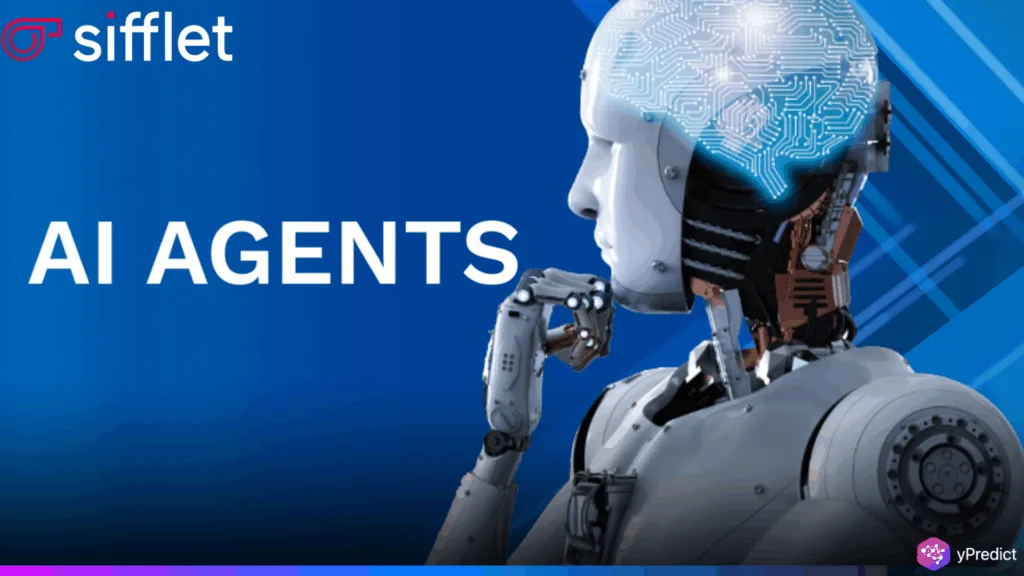
Sifflet has unveiled a new suite of AI agents, Sentinel, Sage, and Forge, designed to automate and enhance data observability in modern analytics environments. These agents add layers of memory, reasoning, and intelligent response to Sifflet’s existing platform, offering data teams faster incident resolution, contextual root cause analysis, and automated monitoring strategies. As AI models flood enterprise stacks and data volumes skyrocket, Sifflet aims to reduce noise and manual overhead while improving data quality at scale. The new AI-powered system is set to roll out in private beta soon, with early customers praising its adaptability, precision, and potential for massive efficiency gains.
Intelligence-Led Data Observability for a New AI Era
Sifflet’s new AI agents are purpose-built for data teams facing exponential growth and increasing complexity. Sentinel scans system metadata to recommend precise, automated monitoring strategies, eliminating the guesswork. Sage acts like an institutional memory bank, using historical incidents and lineage to pinpoint root causes in seconds. Forge then recommends targeted, context-aware fixes grounded in real operational patterns. Together, they form a closed-loop intelligence layer that transforms observability from reactive to proactive. The system is designed to scale with data teams, not weigh them down.
As AI workloads move into production, reliable data pipelines are no longer optional; they’re mission-critical. Sifflet’s platform helps enterprises shift from rule-based alerts to insight-driven action. Customers like Saint-Gobain report major productivity gains and sharper focus as a result. By embedding agents directly into its core platform, Sifflet empowers businesses to trust their data without expanding headcount or spending months building custom logic. Instead of chasing alerts, teams are guided toward resolution, armed with knowledge of past issues and proven fixes. In a landscape defined by AI-era acceleration and data chaos, Sifflet’s approach delivers both control and clarity.
Redefining Observability with Autonomous Agents
With its new AI agents, Sifflet is positioning data observability as a strategic enabler of AI success, not just a reactive IT function. These agents replace static dashboards and generic alerts with intelligent systems that continuously learn, adapt, and improve. Sage, for instance, doesn’t just flag errors; it understands context. It can connect broken pipeline symptoms to upstream schema changes or downstream failures, eliminating hours of manual tracing. Forge complements this by suggesting fixes drawn from real-world resolution patterns, accelerating recovery times without compromising precision. Meanwhile, Sentinel ensures you’re not wasting compute or human attention on irrelevant metrics.
This move comes at a pivotal time. Enterprises are increasingly investing in AI while relying on fragile, hard-to-scale data systems. Sifflet’s AI-native model gives teams a way to scale reliability without scaling human resources. Industry analysts are already calling it a major evolution. “Sifflet’s agent-based model signals where the future of observability is heading,” said Sanjeev Mohan, former Gartner VP. “It’s not about more alerts; it’s about smarter systems that think with you.” With a private beta now underway, Sifflet is inviting data-driven organizations to experience what intelligent observability looks like.
Data Observability Gets Smarter, Faster, and More Scalable
Sifflet’s AI agents are not just features; they represent a shift in how businesses can manage, maintain, and trust their data. As more enterprises deploy generative AI and real-time analytics, traditional observability systems are falling short. Sifflet is filling that gap with automation that mimics experience and intuition, helping teams move from firefighting to foresight. With Sentinel, Sage, and Forge, the company has created AI tools that evolve with your data and your business. It’s a glimpse into the future of AI tools infrastructure, where observability isn’t just about uptime but intelligence. The beta program is live, and the data revolution just got smarter.






